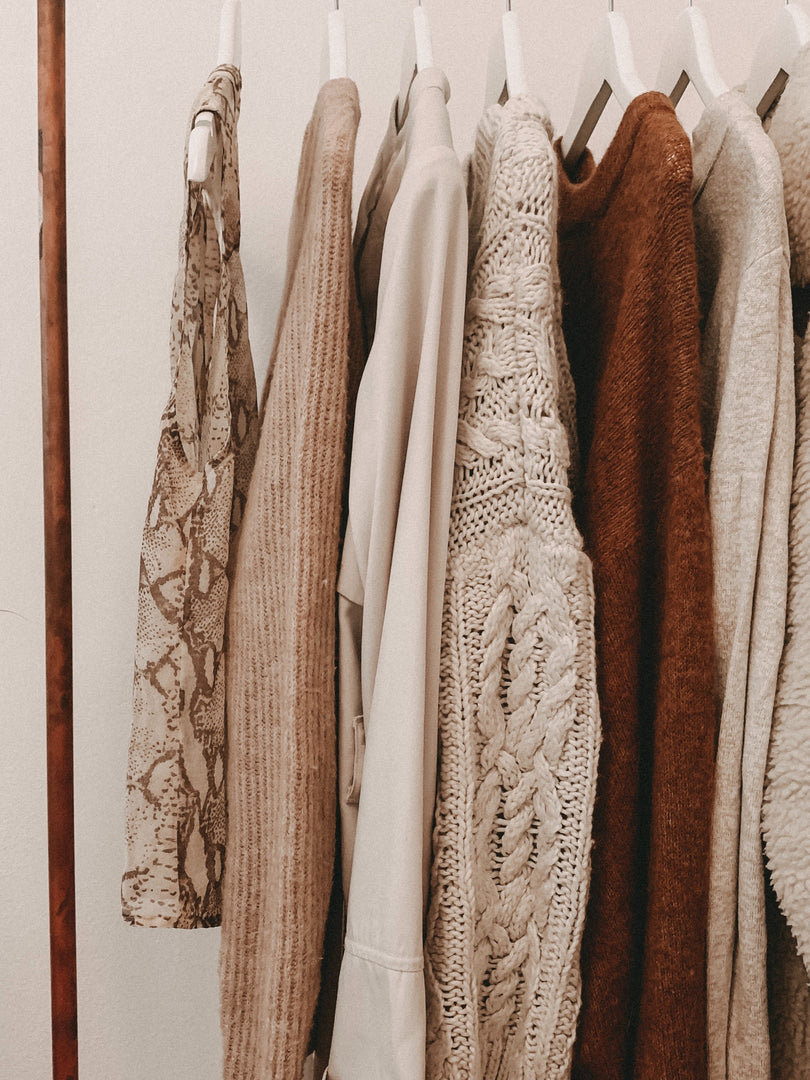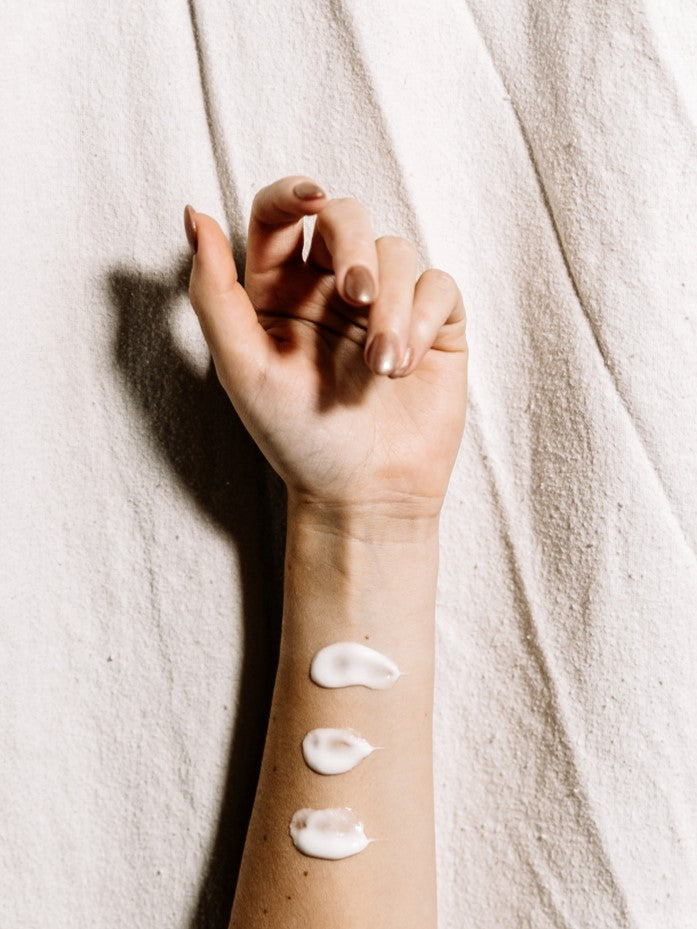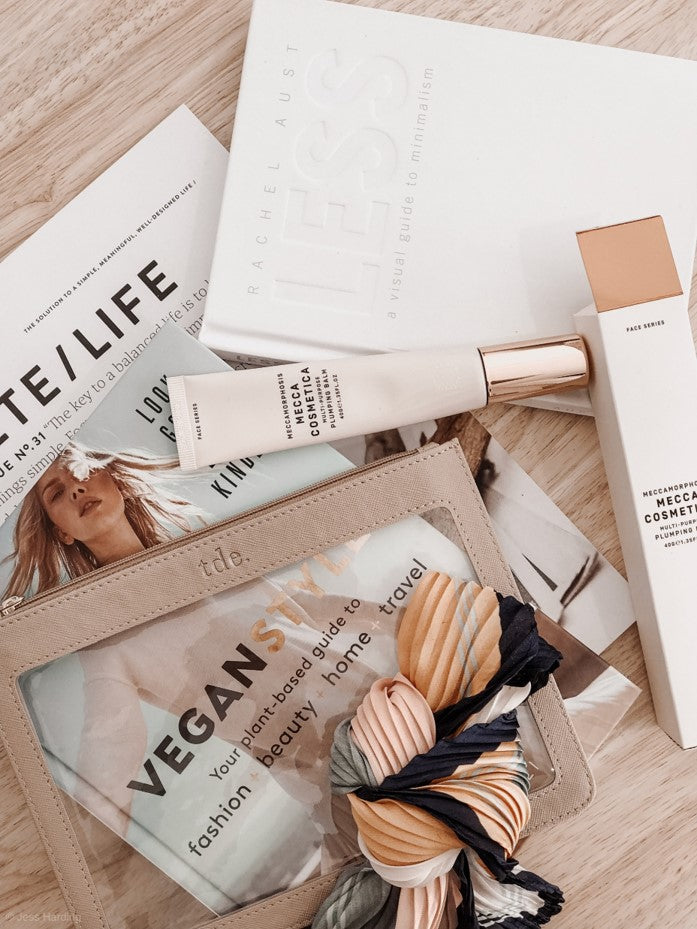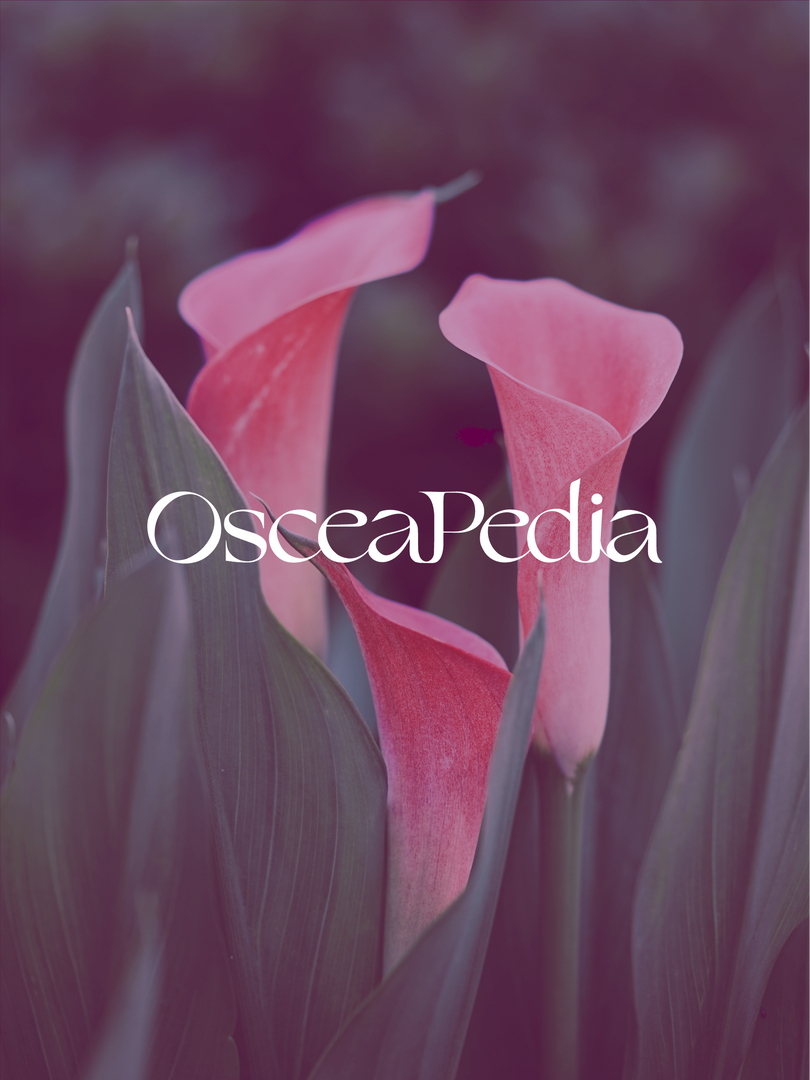Jon Whelan, the director of the 2015 documentary Stink!, investigated several brands for the toxic chemicals found in the everyday consumer products they were selling here in the United States. Stink! has since been internationally successful and eye-opening to the public. It has been shown in 25 film festivals globally and has won numerous awards including Director’s Choice Award (Sedona International Film Festival) and Best Documentary in several other film festivals. It has also received praise from the New York Times, the LA Times, and the Boston Globe.
After initially investigating a pair of pajamas Jon bought for his daughters from a popular children’s brand because they had a strange smell upon opening, he discovered there were toxic carcinogenic chemicals on them after having them tested in a lab. The documentary then goes through his journey starting with customer service reps and eventually goes deeper by extending questions and concerns to CEOs and political figures. He still advocates today for transparent labels on popular consumer items so people know what they’re purchasing.
1. What type of background initially got you into sustainability?
I went to business school and was always interested in different business models, and I remember 20 years ago looking at different businesses that were claiming to be sustainable and thinking what did that exactly mean? Flash forward to the pajama incident, I bought my daughter's pajamas from a popular kids brand that had a weird smell. So it was just curiosity at first, but the smell was too strong to let go, and it just became a documentary because I just wanted to get to the bottom of what was in the pajamas and if it was safe, and of course it turns out that they weren't. This one incident and product was basically a microcosm of a larger issue, which is that we take for granted that different chemicals go into products on the shelf and thereby signal to a consumer that it's safe. What I found is that's not necessarily the case, not even close.
2. What was the company’s initial reply to the chemicals on the pajamas and where did you go from there?
If you call any company, you get a customer support member. They're just doing their job, they're getting paid minimum wage, and they're answering the questions as best they can based on the limited information they have. So if you called a company and said, “I got this shampoo, and it has fragrance in it. I just read that the fragrance could have benzene. Is this true?” Well, they're gonna look at the list of ingredients in their products, but of course, benzene isn't going to be listed because they don't legally have to. They can say it's part of the fragrance or it wasn't intentional because it was caused by some sort of chemical reaction.
The pajamas were then sent by Jon to a laboratory to get an exact list of the chemicals.
3. What chemicals were found on the children’s PJ set from the laboratory report you obtained?
Phthalates and specifically a couple different types of flame retardants.
4. What was the most concerning chemical found on the pajamas from the laboratory report?
The largest concern were the flame retardant chemicals that were in the product, two weren't supposed to be there because the type found in that specific product was supposed to be banned going back to the 70s. Because these companies are on the honor system, these products don't get tested. What consumer is going to take a $15 pair of pajamas and spend $500 to see if the company is complying with the law. The retailer isn't going to be responsible because they could assume that the marketer does that. The marketer is going to say we are regulated by this federal agency. The company whose name is on the product is most likely not even making it. They're outsourcing it to a company, which gets sent to three companies, they get competitive bids, and end up going with the cheapest one. It's sad that a lot of people or companies don't do the right thing, until they're fearful of litigation. The bottom line is they are only trying to avoid damages to their reputation, because the reality is I would argue the system is broken, but unfortunately the broken system works for a lot of these bigger companies.
5. Are these chemicals banned/ restricted in the US?
Some are, but it's hard to pinpoint causation. Most companies are on the honor system, so even if the chemicals are banned, it’s only a problem if people find out; which is really a shame.
6. Why is the term “fragrance” and “flavor” on ingredients most likely harmful?
When people buy products, it shows you how powerful the scent of a product is in general. For example, if someone buys a shampoo, they're not walking in the aisle and testing the product on their hair to see if it works. They're smelling them like candles to see if they like the scent of it. The two most important product features for shampoo are its smell and the way it lathers. Now neither one of those things have anything to do with the actual purpose of a shampoo, which is actually cleaning your hair. The other problem is that most of the scents that you smell or think you smell are mimicking actual scents so if it smells like coconut, there's most likely not coconut in there. There's a cheap petrochemical that smells something like coconut, that companies are not required to list out explicitly by claiming it’s from the fragrance.
7. Why do you think there is a major lack of regulation on these chemicals specifically in the US?
In the United States chemicals are innocent until proven guilty, and in places like Europe they're guilty until proven innocent. The gist of it is if they suspect that it could do harm to people they will not sell it. Whereas in the United States, you have to categorically prove that this specific chemical causes this disease which is very hard to do, because there are 85,000 chemicals currently in production. How can you possibly find a subset of people that weren't exposed to all the different chemicals, which we expose ourselves with on a daily basis, and prove that one of those chemicals was the cause of a health condition?
8. How did legislators and other big figures such as the CEO of the American Chemistry Council respond to your request for brands to be transparent on their ingredient labels?
Their goal isn't really to do what's right, their goal is to do what's legal. The FDA doesn't even have the authority to demand the list of ingredients from a company that regulates so if that's the case, how can you say that you're regulated by someone if it's illegal to demand what's in your product? I'm also not saying they are evil people, I honestly think the CEO was too far removed from the people that actually outsource product development to actually bring it in any regulation.
9. Why do you believe companies have not yet removed toxic chemicals from their products?
They really have no incentive to do the right thing. For example, let's say that a company removes all harmful chemicals, which consumers didn't even know about. From the point of view of manufacturers, they'd be solving a problem that consumers weren't even aware of, and therefore they wouldn't get credit for it. Had they also had to raise the price to put better chemistry in there, they still would not be getting credit for doing the right thing, and then potentially be hurting themselves by having a higher priced product. Now consumers say “oh, it's more expensive now,” because now it's safer but they weren't aware it wasn't safe beforehand, so it's tough. I would say consumer awareness of these issues is too low, and who would be who would educate consumers and where would that money come from? Look at the billions and billions of dollars that go into advertising these products. There's not billions of dollars available to educate someone on how to be a better consumer or what to look for in a product and what to avoid in a product. It's tough to expect people to go down the rabbit hole and learn a little bit of the chemistry of their products.
10. What do you think it would take for companies to remove carcinogens from their products?
These companies are not sitting around saying, “How can we hurt people?” It is death by 1000 cuts. We're not going to kill you from this one thing. If you went to the shelf, and there were two shampoos, shampoo one has labeled carcinogens and shampoo doesn't have labeled carcinogens, most people will pick shampoo two, without question. So if you gave people that choice, it would be pretty clear and I would argue the shampoo one after they saw that they would remove the carcinogens. These companies, until they're publicly shamed by consumers wising up to the fact of what's going on, have no incentive to do the right thing.
11. Why do you think the government is so slow for more chemical regulation?
The best explanation is because of the power of the lobby and the money in politics. The American Chemistry Council has about $100 million a year to lobby to ensure that it's not regulated. There's also a lot of misinformation put out there and it keeps people off their back. The opposition are small grassroot organizations that just don't have the funding or the ear of legislators to have an impact in the way that they should or that we need.
12. What do you believe is the biggest roadblock someone may face when attempting to live a cleaner lifestyle?
In a perfect world, people would love to buy all organic food, but the reality is that it's expensive and the mass majority cannot afford to. Unfortunately you have to have a certain means just to be able to afford healthier food or cleaner products, which is just awful. It's just not fair that you should have to spend more money to keep your family safe.
13. What is the most harmful product/habit for Americans they may be unaware of?
I would say that the most dangerous idea is this misconception that if it's on the shelf, it must be safe, and that's not necessarily true. We take for granted the safety profile, and we see the labels, we see the commercial, and we just make certain assumptions that someone somewhere has screened this item for safety and it's just not true. Companies are on the honor system. They're not conspiring to harm people, but if everyone's cutting corners, brands are more likely to do so, so that they can sell things with a little cheaper chemistry, but are a little more harmful. This also means your potential exposure to unnecessary chemicals just keeps going up and it’s death by a thousand cuts. I think that if companies had to disclose everything, they would do a better job of curating what they put in their product because they'd be ashamed if people could google search and see what they're knowingly putting into their products, such as a carcinogen just to save a couple of pennies.
There's also a lot of people confusing name recognition with trust, meaning your biggest, most name brand companies can afford to advertise everywhere, and people in a store think “I know that brand, it must be safe,” but yeah, you might know the brand or you might have heard of that brand, but it still doesn't mean that they're using 100% safe chemicals in their products.
14. What was the first step you took to rid your home of toxic products?
Transparency from a brand is the most important thing to me. If a company is not willing to disclose everything, then it’s a product I’m just not going to buy. That doesn't necessarily mean if you disclose everything that it is safe, because you can have brands who disclose everything and it ends up being heavily processed and there's 80 different ingredients.
15. What is the biggest piece of information you want the viewers to take away from your documentary?
Don't be afraid to ask questions about a product. If no one asks questions regarding the chemical content or safety, they're certainly not going to try to make a better product. I think it's a good thing to be a healthy skeptic. At the end of the day, if a company is not willing to disclose everything in the product and then don't buy it, because they’re clearly hiding something.
16. How can people get more involved in improving standards for consumer products?
One aspect is supporting organizations that are trying to bring about change and contact your local representatives. Unfortunately with everything going on in the world, it's hard to say something like this would rise above the noise. There are a couple of states, California and New York specifically in the last couple of years, that have been working on different issues that have to do with greater brand transparency. I do think there is incremental change happening as a result, but at the end of the day if people start avoiding products or product categories because they have dodgy ingredients, that sends a strong message to companies. One of the challenges too, is if you see something on social media that goes viral it sometimes gets taken out of context and turns crazy. There’s this idea that all these chemicals are bad and will eventually kill you. That's never been my message though. There’s hundreds of thousands of chemicals in practice and only a thousand of them are the ones we really need to watch. It's just unfortunately, the ones that have the worst safety profile profile happen to be the ones in greatest use.
17. With low consumer awareness, where do you think the drive for a market of clean products will come from?
I think it's a big opportunity for entrepreneurs. For example, if you come out with a makeup product and say, “hey this is this is the first 100% lead free lipstick on the market” that would be pretty provocative and drive consumer attention because you can then say, well, here are the five largest brands, send them each out to a lab for testing, and prove me wrong.
18. Has there been any new positive developments since the documentary has come out?
I would say there are many more companies now who launched to take advantage of the fact that most of the big name brands are not using the best ingredients. I'm talking specifically about cleaning products and personal care products. It's good to see a market based solution. Entrepreneurs are taking advantage of a bad system. I would also say that some of the larger states have enacted laws enforcing companies to be more transparent, so if you're selling a product with these ingredients you have to register it. It’s trying to make it more difficult in the hopes of the company saying we don't want to have to register and disclose that we're selling, for example toothpaste with benzene, so let's just remove it to keep it off the list.
19. Where can viewers watch this documentary?
The documentary Stink! can be found on Amazon Prime video, iTunes, Google Play, and Vudu.
20. How can viewers Take Action after viewing the documentary?
On the Stink! website there are multiple call to action steps us viewers can take after watching the documentary. Encouraging your schools and universities to have viewings and discussions of the documentary is important as consumer awareness is crucial in this issue. You can also find information on creating fragrance-free zones in your community and more on how to create one on the Stink! website.
21. What is next for Jon?
I am currently doing some private investing, while researching a possible story, but nothing too concrete.
Jon continues to advocate for more transparent ingredient labels.
22. Where can people find and follow for updates on Stink!?
There is the Stink! Facebook page where updates on the issues regarding chemical transparency are posted. Stink! also has a website where there is a call to action page, a Stink! blog, and more like film extras can be found.












